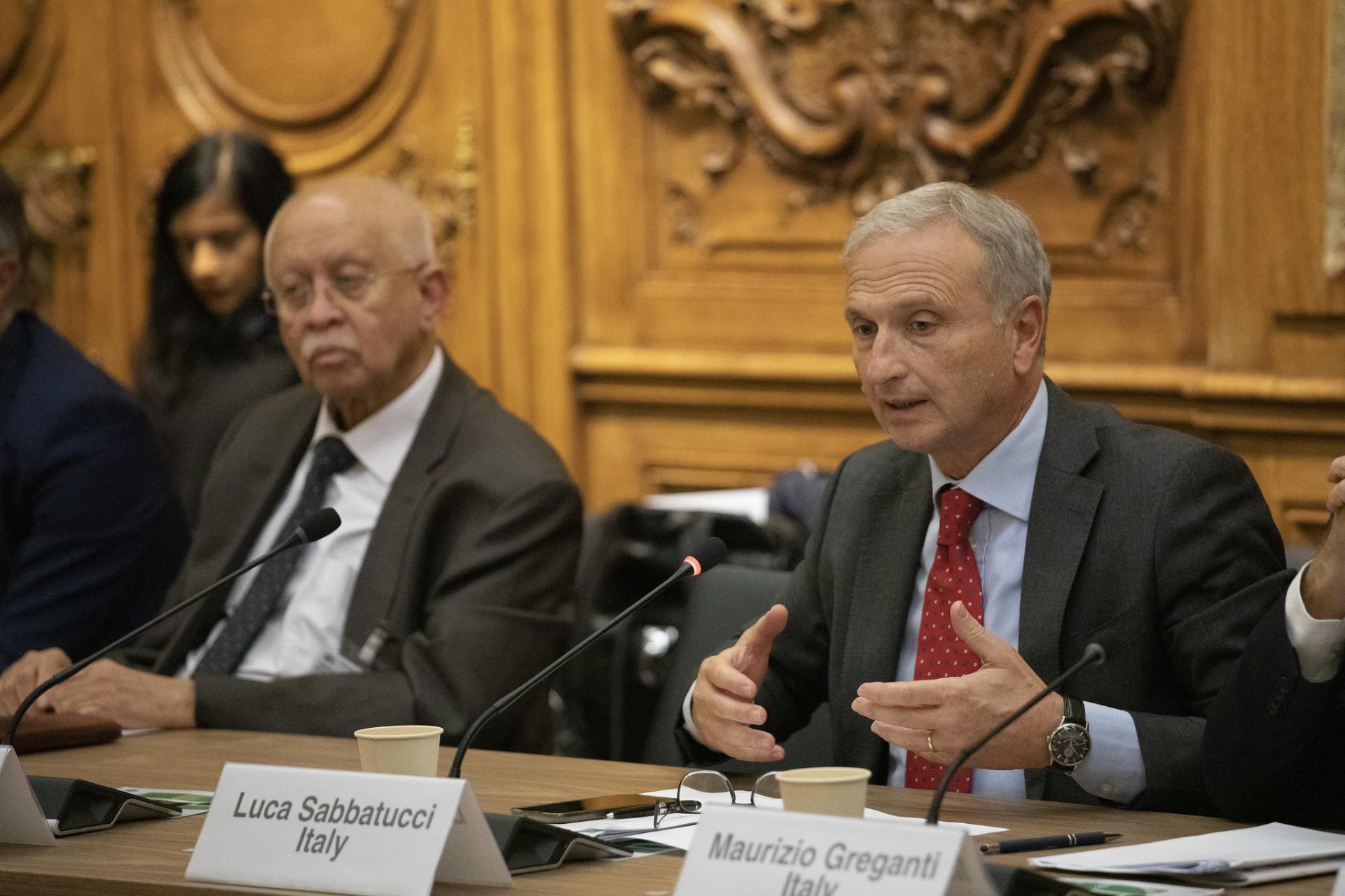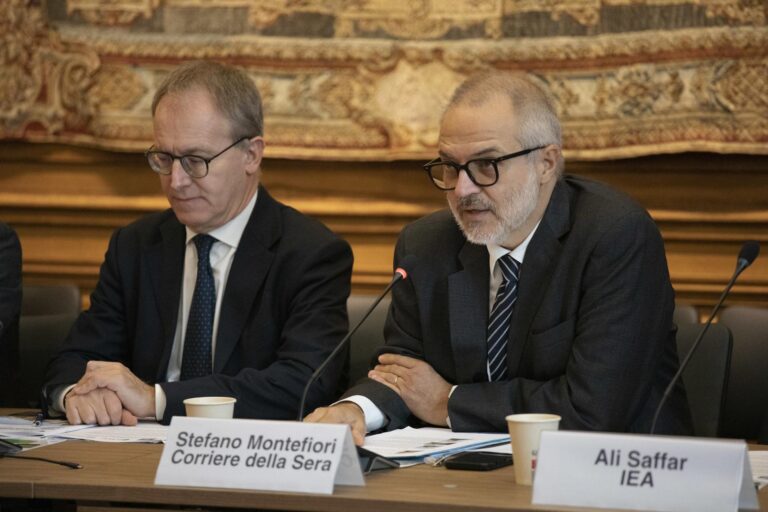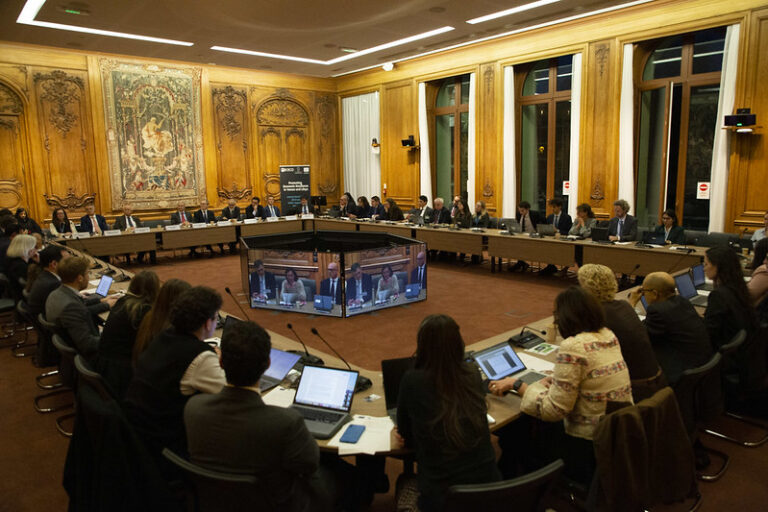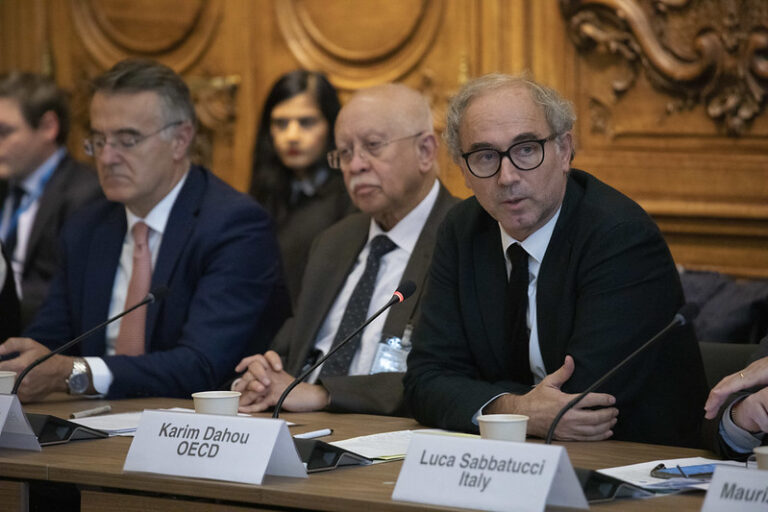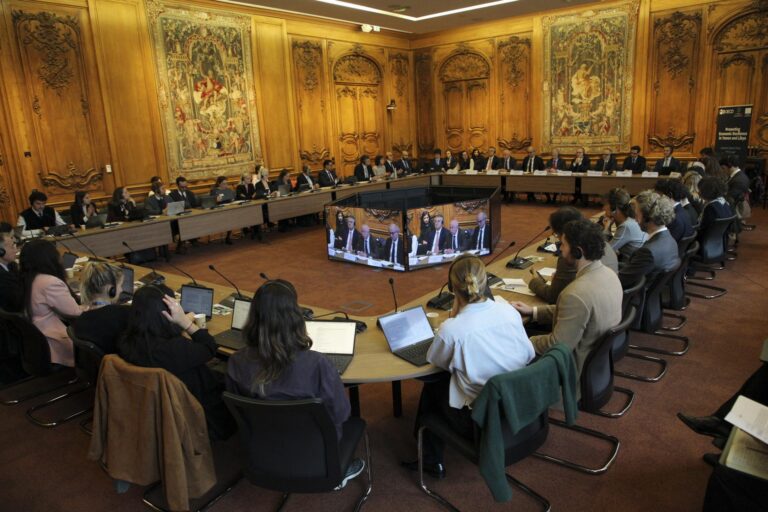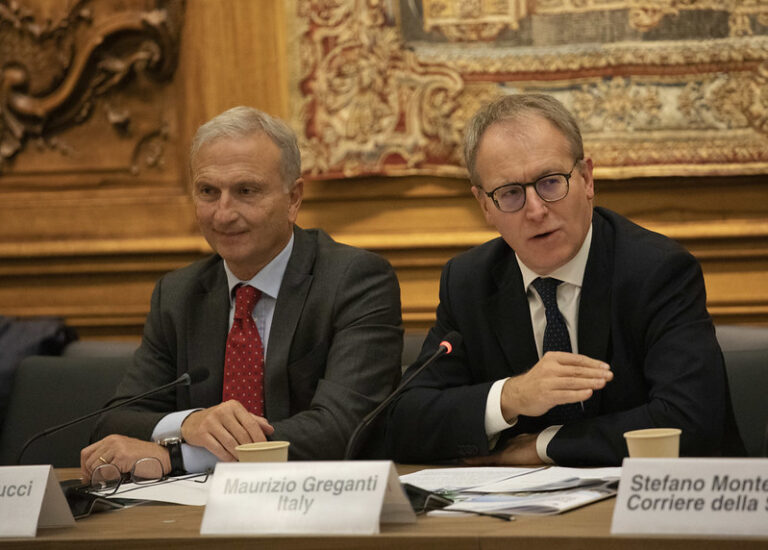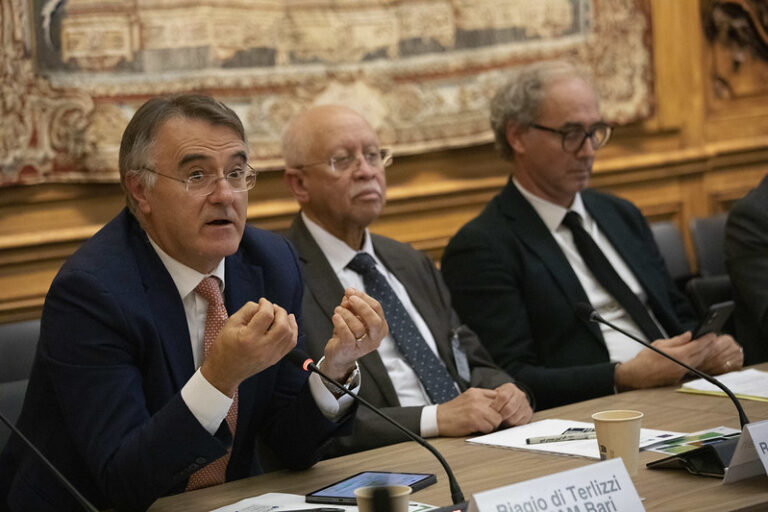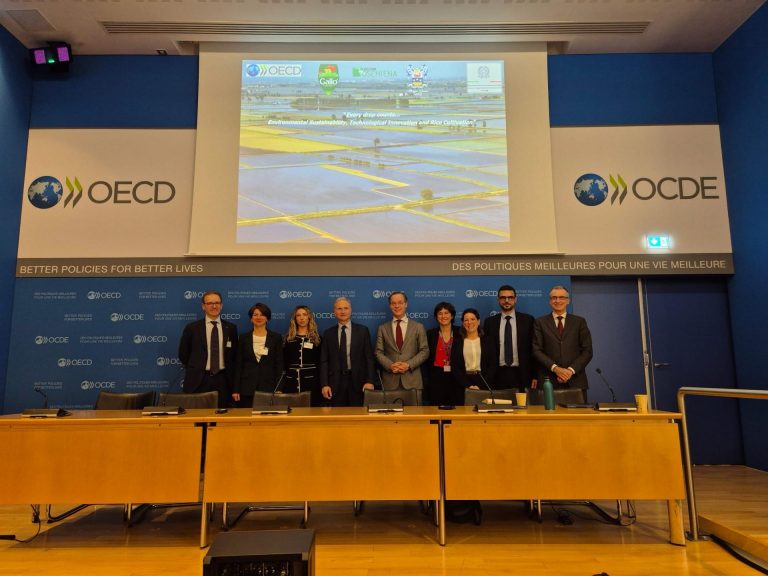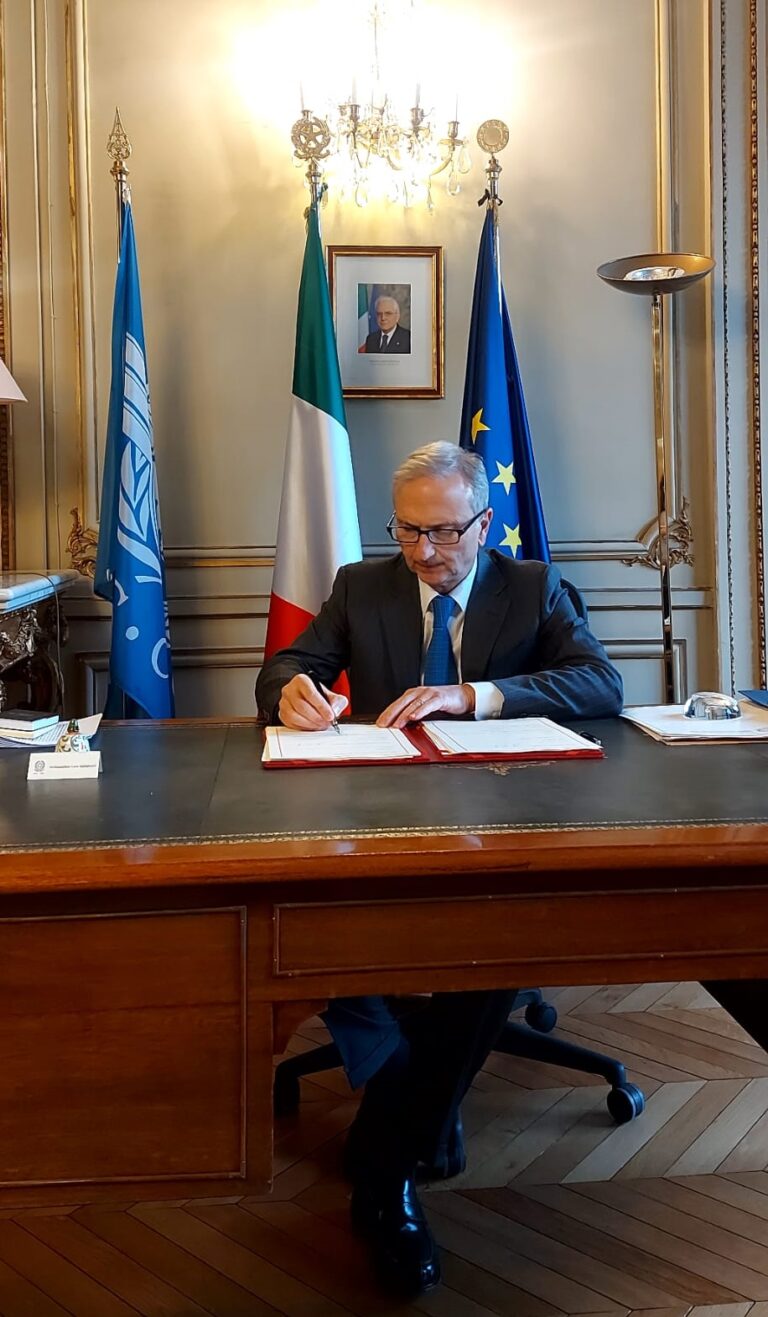The Permanent Mission of Italy to the OECD and the Directorate for Global Relations and Cooperation (GRC) of the Paris-based organization organized the event “Promoting Economic Resilience in Yemen and Libya:
Lessons Learned from OECD and Italian-Supported Actions,” dedicated to the results of Italian-supported projects in Libya and Yemen. Speakers on behalf of Italy included Ambassador Luca Sabbatucci, Permanent Representative to the OECD, and Maurizio Greganti, Central Director for the Mediterranean and Middle East Countries at the Farnesina. Speakers included Mohammed Al Hawri, Deputy Minister for Planning and International Cooperation of Yemen, Reyad Yassin Abdullah, Deputy Director of the GRC Karim Dahou, and Biagio di Terlizzi, Director of CIHEAM – Bari.
The EU delegate to the OECD, representatives of Libyan and Yemeni institutions, the International Energy Agency (IEA), and other OECD Secretariat bodies also contributed to the proceedings. The event was moderated by Stefano Montefiori, Paris correspondent for Corriere della Sera. In 2024, Italy provided €350,000 in support of the OECD project “Promoting Public-Private Dialogue in Libya,” an initiative aimed at strengthening dialogue between Libyan public institutions and the private sector in the agri-food, banking and finance, ICT, transport, and logistics sectors. A second Italian grant, amounting to €500,000, supports the project dedicated to strengthening food and energy security in Yemen through the training of 50 Yemeni officials and the technical support of specialized institutions, thanks to collaboration with the OECD Training Center on Public Governance in Caserta, CIHEAM Bari, and the International Energy Agency.
In his remarks, Ambassador Sabbatucci emphasized the strategic importance of the two countries for the stability of the entire region, which has direct consequences for Italy as well. It is also to this end that Italy has decided to draw on the OECD’s capabilities—in addition to its efforts elsewhere—to promote economic resilience in Yemen and Libya, through targeted interventions to strengthen the training of key players for the economic progress of the two countries. Director Greganti, outlining the cornerstones of Italian foreign policy in North Africa and the Middle East, highlighted its dual approach: short-term, to respond to the region’s ongoing crises, and long-term, to find stable and lasting solutions. The Director also reaffirmed the OECD’s role in this context, thanks to its expertise in crucial areas such as capacity building and the promotion of public-private partnership initiatives.



